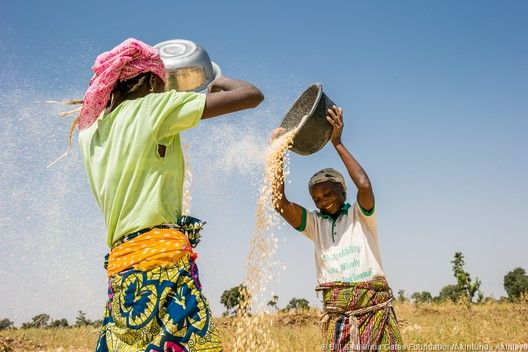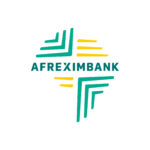Kola Masha is the Managing Director and Chief Executive Officer (MD/CEO) of Babban Gona and the Lead Coordinator of Givefood.ng. He holds an MBA (Honours) from Harvard and a master’s degree in mechanical engineering from the Massachusetts Institute of Technology (MIT) in United States (US). He is an award-winning social entrepreneur committed to solving Africa’s dramatic rise in insecurity. He has equally been exposed to leadership across four continents, from leading multi-national companies like General Electric (GE), Abiomed and Notore.
He also has public sector experience from working as a former Senior Adviser to a former Minister of Agriculture in Nigeria and has been recognised internationally as a thought leader in Agribusiness in Africa. In recognition of his leadership in driving positive change on the African continent, he has received several global awards, including the prestigious Eisenhower Fellowship and the Rainer Fellowship.
In this interview, he talks about his partnership with Sterling Bank Plc on the Givefood.ng project, adding that the bank played a significant role in providing operational support.
Givefood.ng is a crowdingfunding platform that was used to raise money to feed ordinary Nigerians by a coalition in need during the period of lockdown ordered by the government as part of effort to halt the spread of COVID-19 in the country.
Kindly tell us what Babban Gona is all about.
Babban Gona is a leading social enterprise in Nigeria presently and is part-owned by small networks of smallholder farmers it serves through a model created specifically to attract the youth. The members receive development and training, credit, agricultural inputs, marketing support and other key services.
Besides increasing each farmer’s yield two times the national average and guaranteeing income of 2.5 to three times the national average, the Babban Gona franchise works to demonstrate that the smallholder segment is a viable model for investment. So, the franchise helps to attract massive new capital to the sector.

What inspired you to set up Babban Gona?
I was inspired to set up Babban Gona in a bid to help prevent the spread of economic insecurity in Nigeria and to revitalise an agricultural sector that can offer its youth attractive prospects for a viable income that is urgently needed.
Have you been able to achieve your target in Babban Gona?Babban Gona has helped more than 65,000 smallholder farmers across the country to double their yields and increased their net income 2.5 to three times that of the average farmer, with members earning a return of more than $2 for every $1 invested. Since inception, Babban Gona has cultivated over 55,000 hectares of land in partnership with smallholder farmers. Also, its demonstration of the ability to produce high quality products has enabled Nigeria’s first forward contracts for maize in the poultry industry. Over 280,000 people have benefited from healthier food produced by Babban Gona farmers, including low aflatoxin and bio-fortified maize. Consequently, some of its beneficiaries have commended Babban Gona for its support. Naomi Michael, a beneficiary, told us that the quality fertilizer and good seeds she received from Babban Gona without delay led to an unprecedented yield and saw her income increase threefold. Of course, this caused a change in her financial situation and she was able to send some of her children to school. Another beneficiary, Jibrin Mohammed, who enjoyed the full suite of services offered by Babban Gona had access to a trained agronomist and extension offices that provided him advice and training on tried-and-tested planting techniques. This support, coupled with the high-quality input seeds, fertilizers and herbicides he received from Babban Gona yielded over five times the national average on his farm.
Kindly take us through the journey of Givefood.ng
With our work in Babban Gona of working with several rural communities in Nigeria when the challenge of COVID-19 began, we decided to be very strategic in how we address the challenge among members of the communities.
Basically, as an organisation, we realised that there was awareness problem regarding the issue of COVID-19 among the people in the rural communities in which we operate.
Consequently, with the help of our partners, we printed about 120, 000 posters and put them up in some 5,000 communities. We also put together about five minutes of pre-recorded audio in the major languages in Nigeria and shared them among the farmers.
The next thing we realised was that many of the people in these communities did not have protective materials against the coronavirus, particularly communities with no access to portable water. We, therefore, decided to provide them with hand sanitizers. So, we procured a trailer load of hand sanitizers which had 150,000 pieces and distributed them across communities in five states of the federation.
We also gave out food as we realised that the economic fallout of the COVID-19 pandemic was quite significant seeing that the means of livelihood of many people were affected. We were able to deploy technology to deliver thousands of metric tonnes of products in three days to people in the rural communities in which we served.
We were also able to build a coalition of partners and together, we were able to provide more than 200,000 people with food packs while volunteers helped to pick up food packs from supermarkets and distributed them in remote communities.
As an organisation, we have tried to set up Givefood.ng to be efficient and the system runs automatically. We hope it will be available to support families going forward.
How were you able to attract the long list of partners to support your initiative?
Givefood.ng as a crowd-funding site was built around credibility. The partners that are behind Givefood.ng are some of the most credible partners in both the public and private sectors of the economy.
The technology we developed was very effective in ensuring that people see what we are doing and are able to trace it. We were able to create a level of efficiency where 100 percent of what people donated went out as food. It is more efficient than cash because for every N100 a person donated, we were able to actually turn it into N120 worth of food.
How did you attract Sterling Bank into the project?
Sterling Bank is an organisation that Babban Gona had worked with in the past and in terms of vision, we are a bit aligned on the need to move our country forward. So, it was a natural evolution.
Can you please share your experience as a partner with Sterling Bank?
Sterling has been instrumental in beefing up awareness about Givefood.ng through its customer base and by promoting it on different social media platforms. Sterling Bank has also helped on the operations side.

 Join Daily Trust WhatsApp Community For Quick Access To News and Happenings Around You.
Join Daily Trust WhatsApp Community For Quick Access To News and Happenings Around You.


